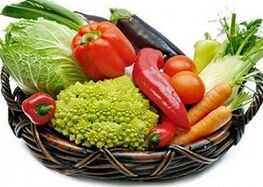
The first thing to think about if you are monitoring your sexual health is whether all the vitamins and minerals necessary for potency are in your diet.
Problems with male potency can be eliminated by including minerals and vitamins in the male diet. The question is which substances actually increase potency.
Vitamin therapy should be carried out only after approval with the attending physician, since an excess of vitamins, trace elements and minerals can lead to disturbances and disturbances in the body, as well as their deficiency. The older a man is, the more he needs to take nutrition, because over the years the body gradually loses its ability to absorb vitamins from food.
Zinc
Perhaps the main trace element for men. Zinc is a building material for testosterone, without zinc the testosterone molecule is not formed. Therefore, if there is no zinc - no testosterone, no testosterone - no potency. Zinc increases sperm motility and has a preventive effect against prostatitis. Zinc is also important for normal development, growth and immunity.
Products containing zinc: fish (perch, trout, herring, saury, salmon), wheat bran, oysters, shrimp, garlic, nuts, egg yolks, squid, anchovies.
Daily zinc intake for men: 15 mg.
Selenium
Selenium is also a very important mineral for men. Selenium affects reproductive function and will be very beneficial for infertile men, because selenium improves sperm quality. Selenium is involved in testosterone biosynthesis and supports genital function.
Selenium-containing products: garlic, eggs, seafood (fish, squid, shrimp), black bread, corn, tomatoes.
Daily intake of selenium for men: 55-70 mcg.
Vitamin C
In addition to the basic functions of maintaining immunity, increasing the elasticity of blood vessels, increasing blood circulation, including to the genitals. Increases testosterone synthesis. It is a prophylactic agent for prostatitis.
Foods that contain vitamin C: cabbage (fresh and sauerkraut), citrus fruits (lemon, orange, tangerine, grapefruit), green onions, parsley, carrots.
Daily vitamin C intake for men: 100 mg.
Vitamin E
Natural antioxidants that promote cell renewal and increase their resistance to damage. Normalizes capillary permeability, which leads to an increase in blood circulation, including to the genitals.
Foods that contain vitamin E: vegetable oils (olive, sunflower, corn), egg yolks, celery, leeks.
Daily intake of vitamin E for men: 30 mg.
B vitamins
Increases the synthesis of the main male sex hormone - testosterone. Protects the heart, restores the energy structure of a person. Participates in 15, 000 biochemical processes in the human body.
Products containing group B vitamins: dairy products (milk, cottage cheese, cheese), nuts, carrots, fish.
Daily intake of B vitamins for men: vitamin B6 is 2 mg, vitamin B12 is 2 g.
You should not rely solely on vitamin-mineral complexes of pharmaceutical origin, as some synthetically obtained vitamins do not function properly in the body (for example, vitamin C or ascorbic acid). Vitamins and minerals obtained from natural foods are more effective than their synthetic counterparts.
















































































